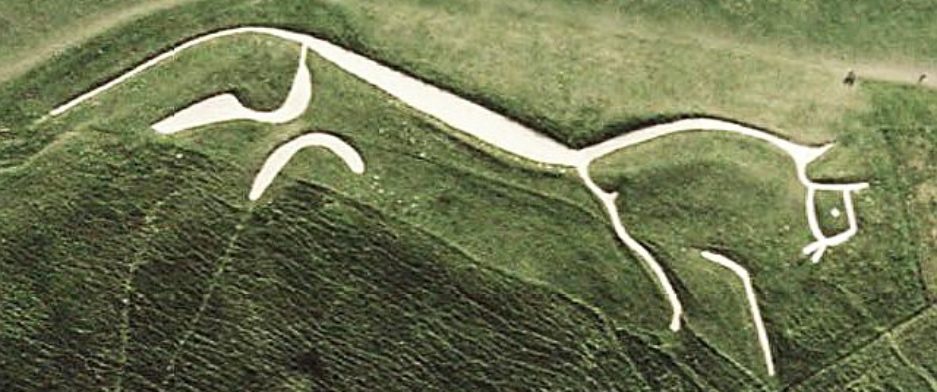
2 x 10 week terms (see dates below)
On this course, run on Zoom via the HLSI (Highgate Literary and Scientific Institution), we’re going to think about how film and fiction have influenced each other and shaped each other’s possibilities. Is it possible to write fiction without a cinematic horizon? Why do some adaptations of ‘much-loved’ classic texts arouse such alarm and hostility? What happens when the early 19th century context of Jane Austen’s Emma is transposed to a 1990s US high school, as in Amy Heckerling’s 1995 adaptation, Clueless? Are such re-contextualisations still adaptations, or do we need another word for them?
We’ll start by defining adaptation as a process whereby a text in one form or medium (print in this case) is translated or re-presented in another, in this case film. When a novel is adapted for film, dialogue may be retained but the narration is translated into images, speech, music and sound effects, edited into a particular order, shape and aesthetic. One of the aims of this course is to develop some ways of ‘reading’ and analysing films in ways comparable with how we read and analyse books. There have been many debates about how ‘faithful’ certain adaptations of well-known books have been. Armando Ianucci’s film David Copperfield (2019) and the recent furore about Steven Knight’s BBC serial of Great Expectations (2023) are two recent cases. Fidelity is one topic we will cover, but the course’s aim is to explore the relationship between film and literature in a broader and richer way. The boundaries between film (and television) and novels are much more porous than we often suppose. In the 1930s, 40s and 50s, many novelists worked directly with film companies, writing scripts as well as novels and short stories, or adapting other novelists’ work, for example Raymond Chandler, James M. Cain and Graham Greene.
In the first term, we’ll focus on the 1930-50s and a context where there was a very fluid relationship between film and novels. First, we’ll think about the adaptation of American crime fiction into the film noir genre. We’ll then go on to look at some cases where directors used literary material in very different ways to develop their own characteristic style, e.g. Alfred Hitchcock used a French novel set in France during and after World War Two, Among the Dead, as the basis for the San Francisco-set Vertigo.





In the second term, we’re look at some adaptations of novels that have particular status, because of their perceived literary value, their place in a literary tradition or their categorisation as ‘much-loved’ (Little Women fits into this category, so does David Copperfield). How is the process of adaptation treated? Are there ways of signalling the value of such texts within contemporary culture, or to put this another way, can cinema represent literature and literariness?
It’s possible to do one or both terms. I’ve chosen both the books and the films because they are all interesting in themselves. As usual, we’ll be looking at a mixture of well and lesser known texts. Your ‘homework’ each week will often include watching a film as well as reading, though we’ll spend plenty of time on each text. I’ll be showing clips in the class via YouTube, but it will be up to you to watch the films complete as part of your preparation. I’ll make sure all the films are easily available as DVDs and/or on Netflix, Amazon or YouTube.
AUTUMN TERM (20th September to 29 November 2023)
Week 1
Introduction. What is adaptation? How do we ‘read’ films?
Weeks 2 – 5
The adaptation business
James M. Cain, Double Indemnity (1943) [novel]
Billy Wilder d., Double Indemnity (1944) [film]
Nicholas Ray d., In A Lonely Place (1950) [film]
Dorothy B. Hughes, In A Lonely Place (1947) [novel]
Weeks 6 – 10
Auteur adaptation
Graham Greene, ‘The Basement Room’ (1936) [short story]
Carol Reed d., The Fallen Idol / The Lost Illusion (1948) [film]
Pierre Boileau and Thomas Narcejac, D’entre les morts (1954) [novel]
Alfred Hitchcock d., Vertigo (1958) [film]
Rumer Godden, The River (192024)46) [novel]
Jean Renoir, The River (1951) [film]
SPRING TERM (January to March 2024)
Weeks 1 – 4
Adapting the 19th century novel
Charles Dickens, David Copperfield (1849-50) [novel]
Armando Ianucci d. David Copperfield (2019) [film]
Louisa May Alcott, Little Women (1868 and 1869) [novel]
Greta Gerwig, Little Women (2019)
Weeks 5 – 10
Adapting early 20th century fiction
My Brilliant Career, Miles Franklin (1901) [novel]
Gillian Armstrong d. My Brilliant Career (1979) [film]
Nella Larsen, Passing (1929) [novella]
Rebecca Hall d., Passing (2021) [film]
Stefan Zweig, Letter from an Unknown Woman (1922) [novella]
Max Ophuls d. Letter from an Unknown Woman (1948)
Reading and viewing
James M. Cain, Double Indemnity (1943) (Orion, 2010)
Billy Wilder d., Double Indemnity (1944) (DVD, Amazon Prime, YouTube rental)
Dorothy B. Hughes, In A Lonely Place (1947) (Penguin Modern Classics, 2010)
Nicholas Ray d., In A Lonely Place (1950) (YouTube, Amazon Prime)
Graham Greene, ‘The Basement Room’(1936) in Twenty One Stories (Penguin, 1992)
Carol Reed d., The Fallen Idol / The Lost Illusion (1948) (YouTube, DVD)
Pierre Boileau and Thomas Narcejac, Vertigo (published in French as D’Entre les Morts, 1954) (Pushkin Press, 2015)
Alfred Hitchcock d., Vertigo (1958) (DVD, Amazon Prime)
Rumer Godden, The River (1946) (Virago, 2012)
Jean Renoir, The River (1951) (DVD, Amazon Prime)
Charles Dickens, David Copperfield (1849-50) [novel] (Penguin Classics, 2004)
Armando Ianucci d. David Copperfield (2019) [film] (DVD, Amazon Prime)
Louisa May Alcott, Little Women (1868 and 1869) (Oxford World Classics, 1994)
Greta Gerwig, Little Women (2019) (DVD, Amazon Prime, Netflix)
Miles Franklin, My Brilliant Career (1901) (Virago Classics, 1980)
Gillian Armstrong d. My Brilliant Career (1979) (DVD)
Nella Larsen, Passing (1929) (Signet, 2021)
Rebecca Hall d., Passing (2021) (DVD, Netflix or Amazon Prime)
Stefan Zweig, Letter from an Unknown Woman (1922) (Pushkin Press, 2015)
Max Ophuls d. Letter from an Unknown Woman (1948) (DVD)
Julie Sanders, Adaptation and Appropriation (Routledge, 2015)



